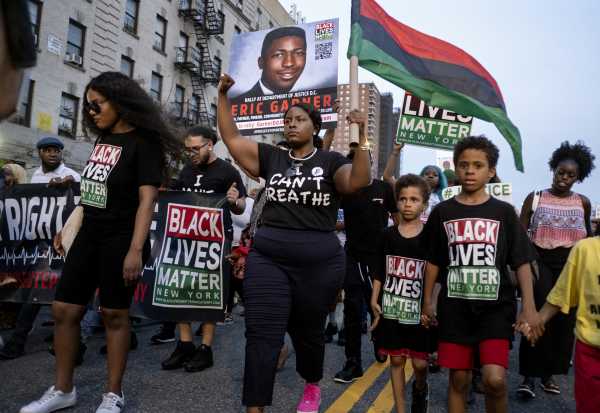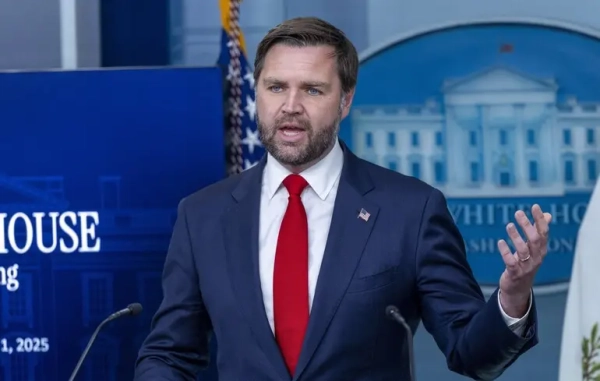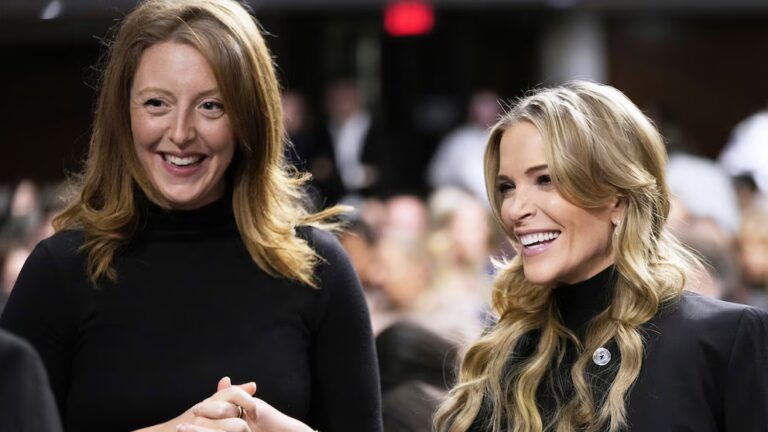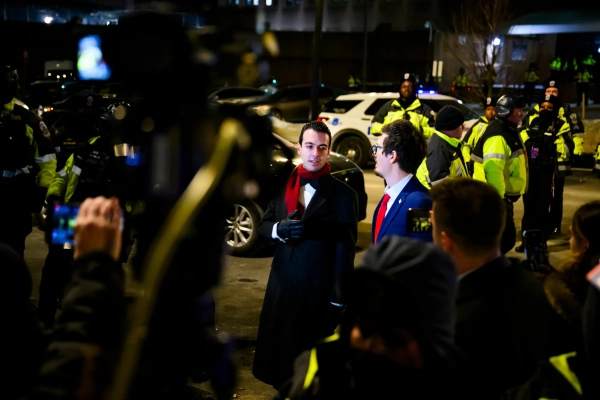
In the 2020 Democratic primary, several candidates have released platforms that would reform America’s criminal justice system. But they’ve had far less to say about policing, which often serves as the first interaction that many marginalized communities have with that punitive system.
Looking at the policy plans released so far, only one candidate, former Housing and Urban Development Secretary Julián Castro, has released a comprehensive standalone policing platform. Other candidates, like South Bend, Indiana, Mayor Pete Buttigieg and former Vice President Joe Biden, have briefly touched on policing in their larger justice reform plans.
But as it stands now, there hasn’t been an extensive policy discussion of policing specifically. This lack of focus is at odds with the attention policing has received over the past five years as racial justice activists have called attention to the ways that policing impacts communities of color. The issue remains important to a number of voters — polling of black voters, for example, has found that many are concerned about police accountability and are looking for candidates to have a serious discussion about it.
“So many communities are impacted by police violence and are looking for solutions,” says Samuel Sinyangwe, a data scientist and member of Campaign Zero, a police reform-oriented research and advocacy group.
This isn’t to say that policing issues have been completely absent from the 2020 primary; some candidates, like Buttigieg and New York Mayor Bill de Blasio, have been called to publicly address police shootings and police violence in the cities they lead.
Even if a campaign does release a policing platform, due to the localized nature of policing, there remains a question of how much impact a candidate’s plan would have.
But even with that caveat, policing experts argue that the federal government can play an important role in police oversight, and in encouraging departments to adopt new standards. In the 2020 race so far, much of the attention to policing has largely been reactionary, and it has rarely led to a broader discussion of policy. Bigger questions of how each candidate would approach police oversight and reform in their administrations have largely gone unanswered.
Policing experts and activists interested in reform say Democratic candidates should be thinking about and discussing the issue as they continue to release policy plans and participate in presidential debates. And they argue that at a time when concerns about police violence remain high, candidates need to have a discussion that matches the impact policing has on communities, particularly communities of color.
When policing has been discussed in the 2020 primary, it’s largely been due to scandals
The issue isn’t that candidates in the 2020 Democratic primary field are unfamiliar with policing. Several candidates have had to deal with policing issues and the larger justice system in their former political careers, including current mayors like Buttigieg and de Blasio, former mayors like Castro and Sen. Cory Booker (D-NJ), and prosecutors like Sen. Kamala Harris (D-CA), and Amy Klobuchar (D-MN).
Many of these candidates have even faced controversies closely tied to policing and incidents of police violence. Buttigieg and de Blasio for example, are currently dealing with scrutiny of police violence in their respective cities. Booker has recently faced questions about police violence and use of force during his 2006-2013 tenure as the mayor of Newark, New Jersey.
Castro, who served as the mayor of San Antonio, Texas, from 2009 to 2014, and is currently the only candidate to have put out a comprehensive standalone policing platform, was criticized by former San Antonio Mayor Ivy Taylor in 2016 for opposing a police union contract that included provisions that she said he did not oppose as forcefully during his own mayorship.
These records, and those of other candidates, could open a bigger discussion of how they’ve interacted with policing in the past and how their experiences inform what they think should happen with policing now.
So far that hasn’t happened.
Policing has “been under-discussed,” says Sinyangwe. “It’s been an undercurrent that’s made it into conversation only in small windows.”
Much of the discussion of policing has been limited to reactionary coverage of high-profile police shootings. In recent weeks, a prominent example has come from the June police shooting of Eric Logan, a 54-year-old black man killed in South Bend, Indiana. Local constituents argued that Buttigieg, the city’s mayor who failed to grapple with some local policing issues until his presidential run, was more focused on campaigning than the needs of black residents in his city. Coverage of the shooting largely focused on what the community outcry would mean for his presidential campaign.
The shooting was briefly discussed at the June Democratic debates, where candidates disagreed over the best way to handle its aftermath. But few candidates actually released full policing platforms after that discussion, (Buttigieg did include a section on police accountability in his “Douglass Plan for Black America,” released in July.)
Questions about police use of force and police violence have also been an issue for New York City Mayor Bill de Blasio, who has recently faced criticism for how the city handled the case of Eric Garner, an unarmed black man who died during a 2014 arrest. Garner’s family and activists argue that the mayor could have done more to discipline the officers involved in Garner’s arrest as the DOJ investigated the incident from 2014 to July 2019.
The problem is that these discussions of policing, when they have happened, have mostly been isolated to discussing specific incidents in certain cities. So far the discussion has not really translated into actual comprehensive policy plans — with one exception.
At this point, only one 2020 candidate has introduced a standalone policing platform
There’s been a limited amount of policing policy in some candidates’ criminal justice plans. Buttigieg’s Douglass Plan, for example, calls for creating incentives that would encourage states to publicly release data related to police use of force, line-of-duty deaths, misconduct and arrests; supports legislation that would raise the standards for officers to use lethal force; and would also back civilian oversight of police departments. Biden meanwhile, has released a criminal justice plan that includes a $300 million investment in the Community Oriented Policing Services (COPS) program and also calls for the Department of Justice “to root out unconstitutional or unlawful policing.”
But the most comprehensive policing plan so far has come from Julián Castro, who released the first candidate policing platform in June.
Castro’s platform focuses on ending “over-aggressive” and “racially discriminatory” policing through a series of reforms that would increase police transparency, improve police accountability, end the use of police officers in schools and rebuild relationships between communities of color and police officers.
The reforms include restricting when police officers can use deadly force, investigating police departments that fail to meet federal standards, and encouraging local governments to limit arrests to serious offenses.
Castro’s plan also promotes alternatives to policing like mental health support and drug treatment programs. Policing reform advocates have particularly praised Castro’s call to limit officers’ ability to claim “qualified immunity’” — which allows many of these officers to avoid lawsuits.
Castro’s plan attracted early praise, and has continued to be cited as an example of what a serious policing reform plan in the 2020 primary could look like. The “federal government is somewhat limited in what it can do for 18,000 police departments, each with their own leadership, policies, and outcomes,” Sinyangwe says. “But many of the things in Secretary Castro’s plan, establishing new standards for use of force in particular, those things are something that the federal government can lead on and use their power of funding to require.”
Some of the things highlighted in Castro’s plan, like changing the use of force standard, have also been covered in the platforms of other candidates. Still, experts argue that Castro and other candidates can go even further.
What a serious debate about policing in the 2020 primary should look like
While there hasn’t been much discussion of policing in the 2020 race, the issue continues to be a prominent one around the country, particularly in communities of color. As trackers from outlets like the Washington Post continue to show, fatal police shootings are still happening.
Even now, these shootings continue to disproportionately affect black Americans and other communities of color: a 2018 article in the Journal of Epidemiology & Community Health, for example, found that while roughly half of police shooting victims are white, young black Americans and Native Americans remain disproportionately likely to be killed in a police shooting.
As these shootings continue to happen, police officers continue to face limited consequences. Convictions remain very rare in police shooting cases, and officers being given prison time for their involvement in shootings is rarer still.
To be fair, national policing oversight can be complicated, largely because so much of it is localized and left to individual jurisdictions to oversee. There are more than 15,000 police departments across the country, many with differing policies and practices. Laws giving deference to officer judgment in shootings often leave victims with little recourse.
But this scope is partially why policing reform experts and advocates argue that the federal government should play a bigger role in policing oversight and reform, and why they’re frustrated that presidential candidates have largely avoided having a deep discussion about the issue.
“I don’t think anyone is all in the way they should be when it comes to putting forth a solution,” says Chris Burbank, a retired police officer and the vice president of strategic partnerships for the Center for Policing Equity. “It’s very easy to play to the idea that we should have fewer people killed by police. But where I think the issue is, is that we’re very good at looking at one policing situation, but we don’t discuss the surrounding laws and tactics. We very rarely look holistically at this,” he adds.
There’s an argument that the federal government could play a particularly large role in overseeing and creating national policing standards and practices. Burbank, a former police chief of the Salt Lake City Police Department, says that one area where the government could specifically take action is in supporting the collection and analysis of data about police use of force. “If we cut the number of people negatively interacting with police in this country annually, you would naturally cut the number of people who are incarcerated and this need to be incarcerated,” Burbank says.
Sinyangwe agrees that data is an important step when it comes to federal oversight of policing. He adds that it is also important for the Department of Justice to pursue “pattern-or-practice” investigations, which are used to investigate police departments with histories of misconduct. He says that these investigations “are a tool that the federal government can use to force many of the types of changes that need to happen in police departments.”
“The problem is that the federal government really isn’t using that tool under the Trump administration,” he says. “But even under the Obama administration, the government only had the resources to investigate three police departments a year. It really wasn’t resourced at a level that could have a real impact.”
Some candidates have backed these reforms. But the 2020 primary offers a chance for candidates to not only release policy plans, it presents a chance for them to explain exactly how they would pursue these sorts of changes, particularly in the wake of the Trump administration’s shift away from policing oversight. A larger conversation about policing also opens up an opportunity for candidates to explain how they plan to go further, and shift how the country approaches policing entirely.
In the 2020 race, “we need to see candidates have a leadership and vision,” Sinyangwe says. “It’s one thing to have a list of policy ideas that sound good, it’s another to have a coherent plan.”
Sourse: vox.com






